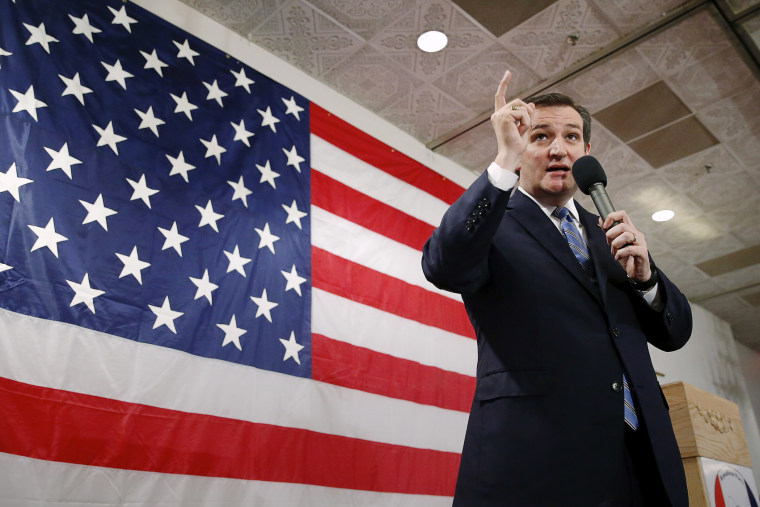Hillary Clinton and Bernie Sanders have had some bitter arguments in recent months over the minimum wage, but the two aren't that far apart. The Vermont senator supports an increase to $15 an hour, while the former Secretary of State support an increase to $12, though if Congress sent her a bill raising the minimum to $15, Clinton has said she'd gladly sign it.
For the two Democratic candidates, increasing the federal minimum wage from its current $7.25 is a no-brainer. The question isn't whether to approve an increase, but rather, how much and how quickly.
And then there's the other side of the aisle. Congressional Republicans continue to insist there will be no increase so long as the GOP is in the majority, and on the presidential campaign trail, Republican candidates continue to not only oppose an increase, but to oppose the very existence of the minimum wage. Politico reported the other day:
Ted Cruz assailed the concept of minimum wage as "bad policy" on Friday, suggesting that companies will ultimately choose machines over humans when it becomes more cost-efficient to do so. "I think the minimum wage systematically hurts the most vulnerable," the Texas senator said in an interview on CNBC's "Squawk Box." ... "I think it's bad policy," Cruz added.
The senator said states should have the authority to approve their own minimums if they choose, but Cruz nevertheless suggested that the federal minimum shouldn't exist at all.
Or put another way, while the Democrats fight over $12 vs. $15, Cruz likes the idea of $0, at least as far as federal policymaking is concerned.
This is the first election cycle in modern times in which opposition to the existence of the minimum wage has become quite common.
Four years after Mitt Romney actually endorsed an increase -- it was probably the most progressive element of his platform -- and nine years after then-President George W. Bush actually signed a wage hike, Marco Rubio and Carly Fiorina this cycle both said the federal minimum wage shouldn't exist. Ted Cruz appears to believe the same thing.
We're not talking about fringe figures in American politics. There's a chance Cruz may even be the GOP nominee.
For what it's worth, his remaining Republican rivals don't go quite as far. Donald Trump and John Kasich both oppose an increase, but neither one has called for an end to the policy itself.
Trump did add late last year, however, "Wages are too high," though no one seems to know what he was talking about.
